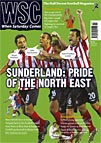 Barcelona’s defeat of Manchester United was considered a victory for good in the press. But is it really so simple, asks Ashley Shaw
Barcelona’s defeat of Manchester United was considered a victory for good in the press. But is it really so simple, asks Ashley Shaw
So good triumphed over evil in football’s version of the moral maze. Fan-owned Barcelona, the club that proclaims itself as mes que un club (more than a club), Catalonia’s national team, won the European Cup at a canter by beating privately-owned, debt-saddled Manchester United where the ticket prices make your eyes water and the PR spin-cycle is always on high.
The contrast between the respective clubs’ ownership, debt levels and shirt sponsors was made frequently in the build-up to the Champions League final to the extent that at times the game was talked up as some kind of morality play. Yet upon closer inspection, the matter isn’t so clear-cut.
The seeds of Barça’s recent success were sown in the 2003 presidential elections. Following his victory, Joan Laporta set about taking Barcelona into the 21st century by modelling their merchandising operation on United’s all-conquering approach of the 1990s and reforming the notoriously complex Camp Nou hierarchy into a more streamlined, cost-conscious model.
The area Laporta focused on to increase income was the sale of TV rights. La Liga’s giants are allowed to go it alone meaning they can generate 14 times the broadcasting income of the smallest top flight clubs. Even the Guardian’s David Conn, a critic of United’s owners and a champion of the socio model, recently admitted that Barcelona’s approach to negotiating such deals contrasted unfavourably with United’s commitment to a collective bargaining agreement that restricts their TV income to just 1.7 times that of the bottom Premier League club. The Big Four have created a cartel in any case via the income they make from the Champions League, but the Glazers have stayed within the TV agreement because they don’t want to offend an acquiescent FA. Meanwhile, Liverpool, Chelsea and Arsenal all know that United’s income would dwarf theirs if they broke away making catching them harder. And although the Premier League is an illusion, in being composed of two divisions of four and 16 clubs respectively, La Liga is even more so – it only has two realistic contenders at the start of the season. The likes of Sevilla and Valencia are left to battle it out for the third and fourth spots; Real Madrid have been terrible this season but they won’t finish lower than second.
Of course Barça members should be thankful they have a say in who runs their club. The annual account statement of United’s Nevada based holding company made for grim reading again last month. The original £559 million the Glazers borrowed to buy the club has now grown to £700m. For all the talk of “record turnover” on the back of a triumphant season (2007-08), the crippling interest payments turned United’s balance sheet red to the tune of £42.7m. So while Barça’s members can vote out Laporta (and they nearly did last season) United fans watch helpless as the club spin the latest tale of woe.
It would seem that the realities of being debt-heavy in a credit crunch world are now impacting on United’s transfer activity. Under normal circumstances and following two momentously successful seasons, finding the fee for Carlos Tevez would not present a problem. The fact that it is, and that there are no replacements available at a similar price, should be setting alarm bells ringing.
No matter the wider ramifications in the boardroom, on the pitch in Rome United fans had to admit they lost to a superior force on the day, but if United failed to live up to the hype it was hard to feel devastated by defeat. Over and above the contrasting ownership, or perhaps because of it, United feel a kinship with Barça and the feeling seems to be mutual. It’s all there: a provincial club that is one of the most recognised on the planet, an attack-minded tradition featuring some of the greatest names to have graced the game and, more recently, a mutual hatred of Real Madrid reinforced by Sir Alex Ferguson’s comments about Franco.
So to soothe the pain in the wake of the Rome reverse, Reds found it easier to celebrate the season’s main achievement. Equalling Liverpool’s title tally had been on the cards from the moment Benítez produced his now infamous sheet of facts. From a position of strength, Rafa’s rant piled the pressure on his own team while Ferguson’s silence spoke volumes. Uncertain before Christmas, United found strength from Benítez’s emotional outburst and embarked on a 11-match winning run.
Nevertheless, United’s ability to stay ahead of Chelsea and Liverpool will be strongly tested over the coming seasons, the only comfort being that our main rivals are in similar dire financial straits.
From WSC 269 July 2009